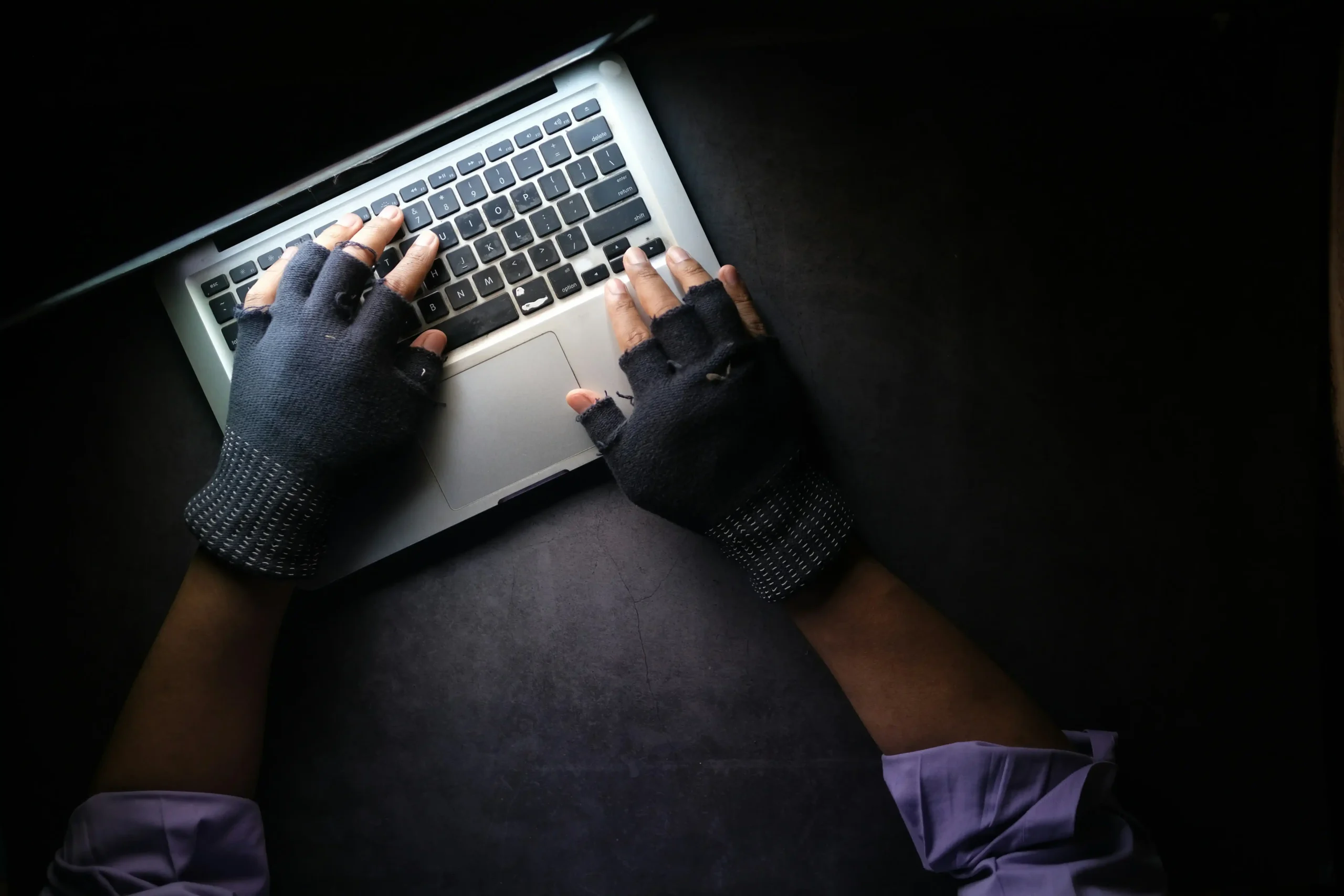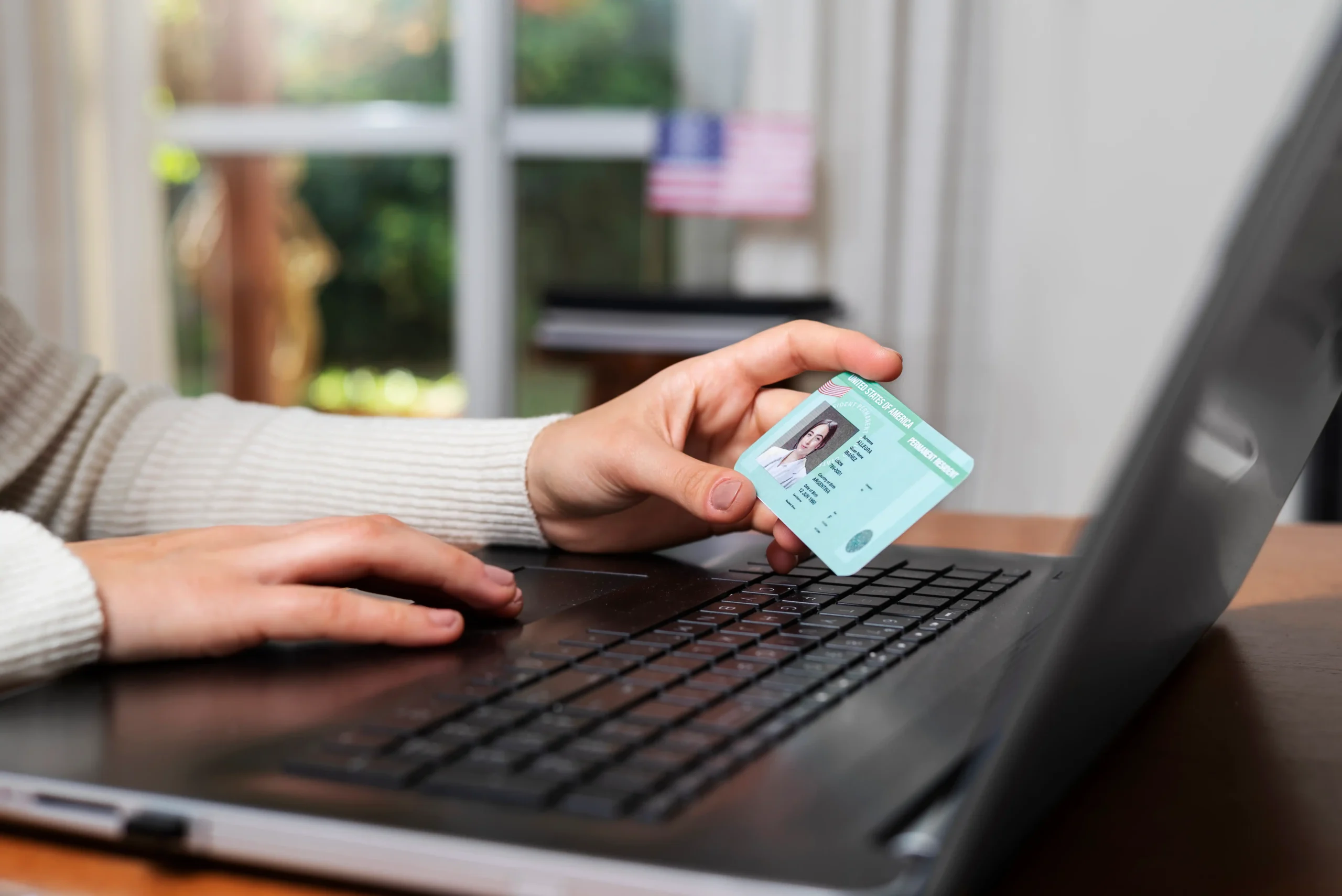Getting a bounced check might seem like a minor inconvenience, but in the U.S., it can turn into a serious legal issue. The real question is: Is it a felony to write a bad check? Even though check usage has decreased, they still cause a lot of trouble.
According to the American Bankers Association, check use has dropped by 25%, but reports of check fraud have nearly doubled since 2021. In this post, we’ll walk you through when this mistake crosses the line into fraud, what the consequences can be, how much it might cost you, and what to do if you’re on the receiving end.
Need support after a scam? Join our community today.
Is It a Felony To Write a Bad Check?
It might seem like an overreaction, but writing a bad check can be a felony, depending entirely on the situation. There’s a clear legal difference between making a mistake with your account balance and knowingly writing a check when your account has no money.
When it comes to legal consequences, two things matter — both are considered elements of fraud that courts evaluate in these cases:
- The amount: In several states — including Florida, Texas, and California — writing a check over $150, can cross the line into criminal offense. The exact amount can vary by state, but $150 is a common threshold where bad checks are no longer just civil matters.
- The intent: If the check was written to mislead or gain something of value, the situation becomes more serious. A miscalculation might be forgiven, but knowingly writing a bad check shows bad faith, which courts take seriously.
What Does It Mean To Write a Bad Check?
Writing a bad check is when someone writes a check knowing—or without checking—that there’s not enough money in their account to cover it. Before we get into the legal stuff, let’s make it clear what this means.
In banking terms, this is called NSF (Non-Sufficient Funds). When the check reaches the bank, they try to process it, but if there isn’t enough balance, the payment fails. That’s when it becomes a bounced check and sometimes moves into bank fraud territory.
Now, how can you tell if someone gave you a bad check? A few things help:
- Ask the issuing bank if funds are available (note: some banks may not release this information)
- Review the check writer’s history — especially if they’ve done this before.
- Wait 24 to 48 hours after depositing the check to confirm whether it clears.
- Pay attention to warning signs like urgency to close the deal or avoidance of questions about payment.
What Causes a Bounced Check?
It’s easy to assume that writing a bad check only happens when someone acts with bad intentions—but that’s not always true. Everyday situations can lead to bounced checks, even without meaning to. Here are the most common causes:
- Forgetting your balance: This is one of the most frequent reasons. Maybe you made a card payment and then wrote a check, not realizing your balance wouldn’t cover both.
- Dealing with automatic payments: Some charges go through without warning, and if you’re not closely monitoring your account, they can cause a problem.
- Using a closed account: Someone finds an old check and writes a check, not knowing the account is no longer active.
- Making human error: A typo in the amount, a missing signature, or writing the wrong date can all result in a rejected check.
- Trying to cheat the system: If someone writes a check knowing there’s no money or alters the information, it becomes a serious issue — and that’s when legal consequences may apply.
According to the U.S. Department of Justice, about 1% of the 50 billion checks written each year in the U.S. bounce due to insufficient funds. It may seem like a small number, but it adds up to millions of real cases with legal and financial consequences.
What Happens Legally When You Write a Bad Check?
Is it a felony to write a bad check? Sometimes, yes, and the amount doesn’t have to be huge for it to become a serious issue. The consequences depend on the state and how the case is handled. You might face a fine, a mark on your record, or, in more severe cases, jail time.
1. Fines
This is one of the most common outcomes. If you write a check without enough funds, you may be required to pay extra to cover the original amount and to take responsibility for the error. Some fines are fixed, while others depend on the check amount or your history of repeated offenses.
2. Criminal record
A bad check on your record shows up in background checks, which can make it harder to get a job, rent an apartment, or apply for a loan. Even if jail time isn’t part of the sentence, this type of legal mark carries long-term consequences.
3. Jail time
It doesn’t happen every time, but if there’s proof you intended to mislead someone— like knowingly writing a check from an empty account —the situation becomes much more serious. Depending on where you live and how much money is involved, you could be looking at a few days or even years behind bars.
What Can Make a Bad Check Situation Worse?
Writing a bad check is already a legal issue. But certain actions can make things much more serious. These are the most common factors that can complicate the situation:
- Writing a check for a high amount: there’s a difference between bouncing a $30 check and one for $1,500. The higher the amount, the more likely it is to trigger criminal charges due to greater financial harm.
- Repeating the behavior after a warning: If it happens again after a warning or penalty, it may no longer be seen as an accident. Repeating the action makes it harder to defend.
- Using a check as part of a scam: If the check is tied to something bigger—like buying something valuable with no intention of paying— it becomes fraud. That raises the stakes and can increase how much jail time you get for bad checks.
How to Handle a Bounced Check Situation?
Dealing with a bounced check can be stressful, no matter which side of the situation you’re on. Let’s walk through what to do step by step:
What Should I Do If I Wrote a Bad Check?
Start by facing the issue. If you realize the check bounced, reach out to the other person. Be honest about what happened and suggest how you’ll make it right. You can:
- Make a transfer for the full amount.
- Write a new check, this time making sure the funds are available.
- Set up a payment plan if you can’t cover it all at once.
It’s also a good idea to speak to your bank. They may charge you for NSF (Non-Sufficient Funds), but acting quickly can help you avoid bigger consequences.
What To Do If I Received a Bounced Check?
If someone gave you a bad check, now it’s about handling it properly. First, keep all records: the check, any messages, and any payment records. Then:
- Call the bank to confirm the check was rejected.
- Contact the person who wrote it and give them a chance to fix the issue.
- Consult a lawyer if they refuse to pay, and ask: “How do I press charges for a bad check?”
Also, keep in mind that it’s not always just about it being a felony to write a bad check — sometimes, it’s part of a larger fraud. Cases of check washing fraud are growing fast in the U.S. Criminals steal checks, erase the ink, rewrite the details, and cash them under a different name.
Have questions about dealing with scams? Contact us for support.
What Crimes Are Commonly Tied to Bad Checks?
When someone is asked if it is a felony to write a bad check, they might not realize that this kind of act can be connected to other crimes — and those links can bring much heavier consequences. Here are some of the most common related offenses:
1. Bank Fraud
Bank fraud happens when someone writes a bad check to mislead a person, business, or a bank. For example, buying something knowing there aren’t enough funds and still handing over a check can be seen as an act of fraud.
2. Identity Theft
This occurs when someone uses another person’s account details to write a check without their knowledge. If the check bounces, the legal consequences fall on the person whose identity was stolen — making this not only fraud but identity theft.
3. Getting Goods or Services Without Paying
This offense involves using a fake or knowingly bad check to obtain something — like a service, a product, or even a car — with no intention of paying. It’s considered a scam, and the person responsible could face criminal charges. In some cases, victims may ask how to press charges for a bad check to recover their losses.
4. Improper Use of Post-dated Checks
Postdated checks are legal, but abusing them can cross the line. If someone writes a post-dated check knowing they won’t have the money — just to buy time with no plan to pay — it’s no longer a mistake. It shows intent to deceive and may lead to fraud-related charges.
Avoid a Felony Charge for Bad Checks with CDN’s Help
Running a business means handling payments every day, but did you know that receiving a bad check can be much more than just a problem? Is it a felony to write a bad check? Yes, in many cases, it is. And if you don’t act fast, you could find yourself facing legal or financial consequences.
At Cryptoscam Defense Network (CDN), we help businesses like yours stay protected from check fraud, crypto fraud cases, and schemes disguised as normal transactions. Do you have questions or have you already gone through a bad experience? Message us today, we’re here to help.
We Want to Hear From You!
Fraud recovery is hard, but you don’t have to do it alone. Our community is here to help you share, learn, and protect yourself from future frauds.
Why Join Us?
- Community support: Share your experiences with people who understand.
- Useful resources: Learn from our tools and guides to prevent fraud.
- Safe space: A welcoming place to share your story and receive support.
Find the help you need. Join our Facebook group or contact us directly.
Be a part of the change. Your story matters.
Frequently Asked Questions (FAQ) About Bounced Checks
How Much Jail Time Can You Get For a Bad Check?
In the U.S., if there’s proof of intent to deceive, it can be treated as a crime in several states. Penalties vary: in some cases, it might just mean a few days in jail, but for more serious situations, the sentence can go up to five years.
How Can I Check If a Check Has Funds Before Accepting It?
You can contact the issuing bank and ask if there are enough funds to cover it, though not all banks will share that information. If you’re unsure, waiting a day or two before delivering the product or service can help you avoid a problem.
Is a Bounced Check The Same As a Postdated One?
No. A postdated check is dated for the future, but it doesn’t necessarily mean there’s no money. A bounced check, on the other hand, gets rejected because there isn’t enough in the account. One is about timing, the other is about balance.

![money-1302835_640[1]_11zon Blank check illustration with textured background and faint blue currency symbol](https://cryptoscamdefensenetwork.com/wp-content/uploads/2025/03/money-1302835_6401_11zon.webp)





